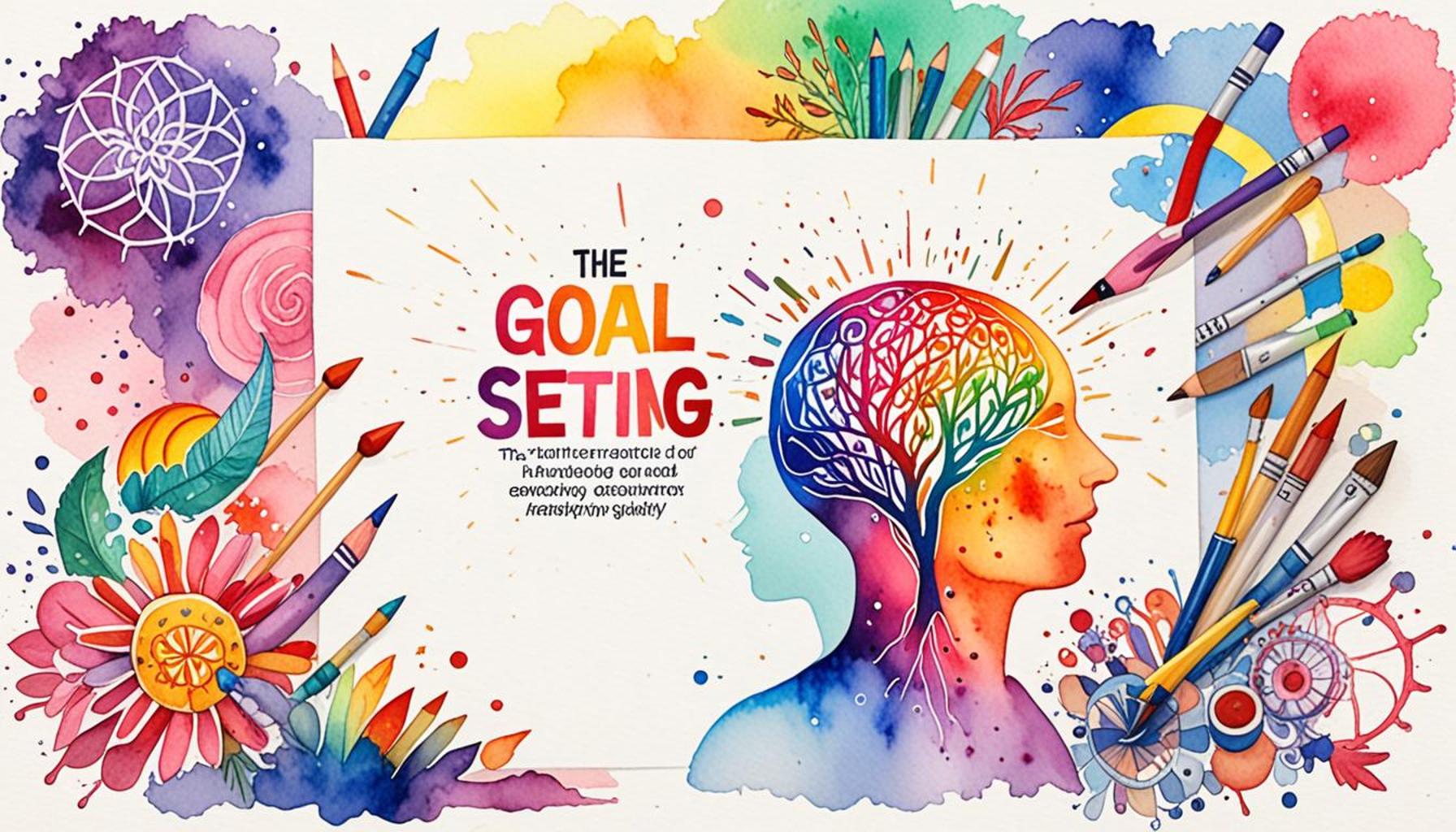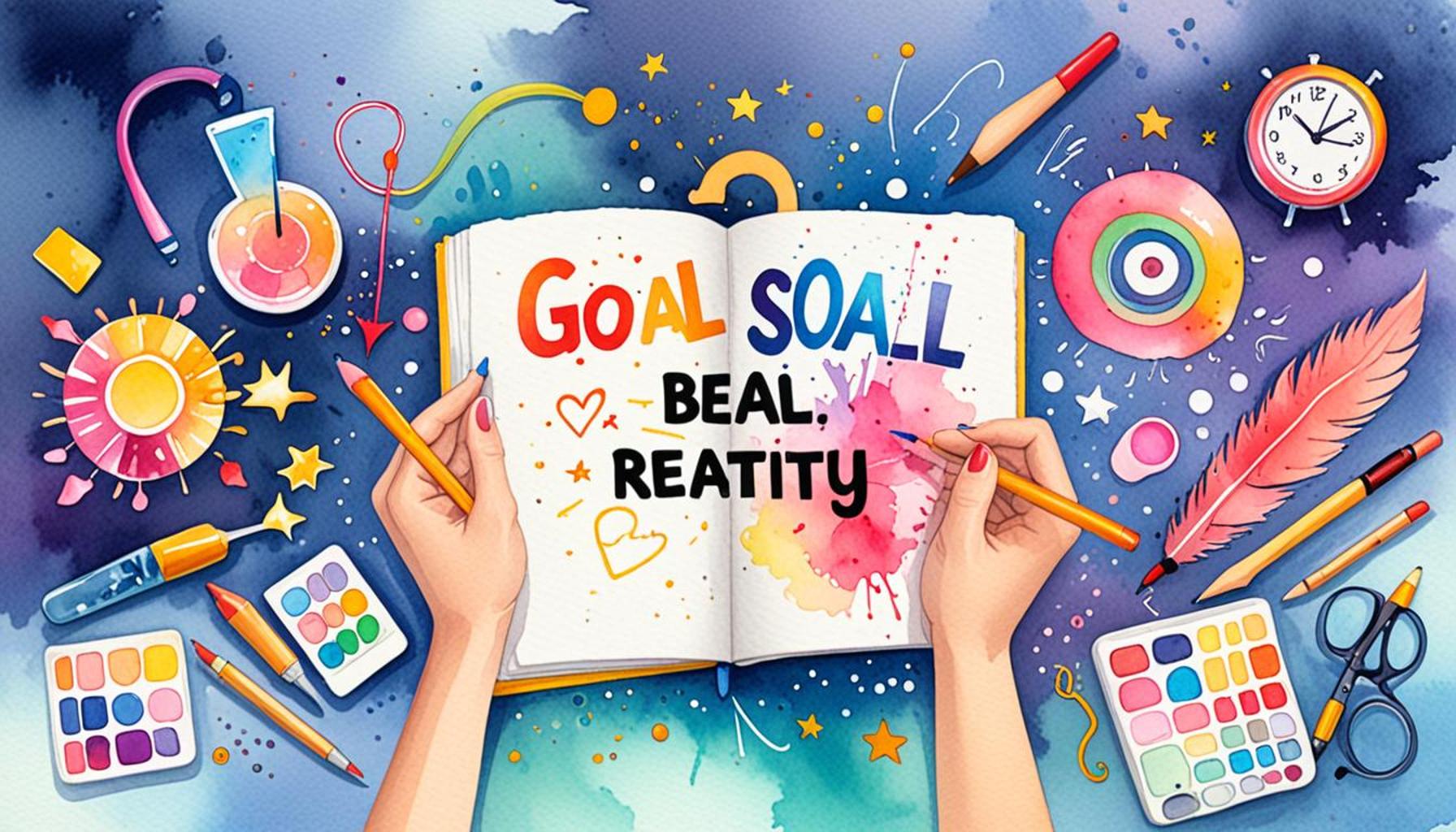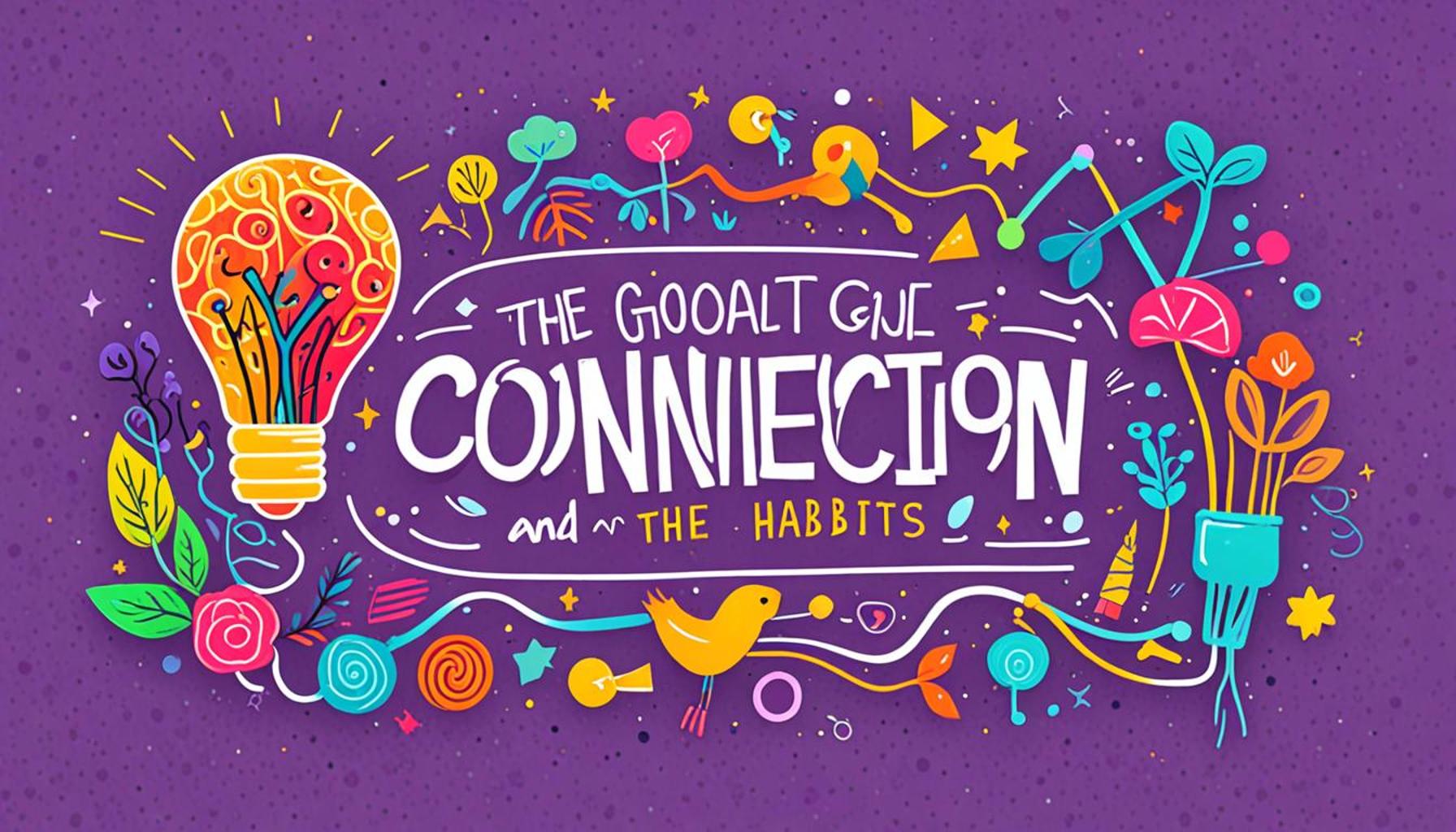The influence of goal setting on the development of emotional intelligence and empathy

The Interplay Between Goal Setting, Emotional Intelligence, and Empathy
Goal setting serves as a vital foundation for shaping one’s emotional landscape. It provides individuals with a structured framework that not only directs their ambitions but also significantly influences their emotional responses and interpersonal interactions. In a culturally rich nation like Nigeria, where various ethnicities and traditions give rise to diverse emotional expressions, the role of goal setting is decidedly pronounced.
Developing a deeper understanding of the connection between goal setting and emotional intelligence reveals critical skills necessary for personal and professional success. These competencies encompass:
- Self-awareness: This involves the ability to recognize one’s own emotions and understand how these feelings can affect behavior. For instance, a student in Ibadan setting academic goals needs self-awareness to acknowledge their anxiety about exams and how this anxiety may affect their study habits.
- Self-regulation: This skill is about managing emotions to sustain motivation and focus on goals. An employee in Lagos, for example, may set a personal goal to improve productivity at work. By practicing self-regulation, they can keep frustration in check during stressful situations, ultimately enhancing performance.
- Empathy: Recognized as the cornerstone of effective communication, empathy is particularly significant in Nigeria’s community-oriented culture. Understanding and relating to the emotions of others help strengthen social bonds, as demonstrated in collaborative community projects, where empathy ensures smoother cooperation among diverse groups.
Beyond individual benefits, setting clear and achievable goals fundamentally enhances empathetic communication, which is crucial in cultivating strong relationships. The manner in which we articulate our goals can either draw in support or foster misunderstandings. For example, in a family setting, a parent expressing their goal to save for a child’s education may evoke a sense of unity and shared purpose, while vague intentions may lead to confusion and resentment.
This exploration into structured goal setting unveils its powerful role in nurturing not only emotional intelligence but also builds empathy within individuals. By fostering a blend of these skills, we empower ourselves to engage more meaningfully with others. Enhanced emotional intelligence can lead to improved conflict resolution and cooperation in diverse social contexts, ultimately contributing to personal growth and stronger community ties.
As we navigate this intersection of goal setting, emotional intelligence, and empathy, the insights uncovered hold the potential to inspire transformational experiences, sparking a journey toward deeper interpersonal connections in the vibrant tapestry of Nigerian society.
YOU MAY ALSO LIKE: Read read another article
The Transformative Power of Goal Setting
Goal setting is more than a mere exercise in planning; it is a gateway to developing emotional intelligence and embracing empathy. In Nigeria’s sociocultural landscape, where communal values and personal aspirations intertwine, the process of setting and pursuing goals can evoke a profound shift in how individuals perceive themselves and relate to others. This transformation is critical in enhancing one’s ability to navigate emotions both within themselves and in their interactions with others.
At its core, goal setting fosters a sense of direction and purpose. By clearly identifying what one aspires to achieve, individuals are prompted to reflect on their feelings, motivations, and challenges. For instance, a young entrepreneur in Abuja, who aims to establish a successful business, must assess their emotional state—recognizing feelings of excitement, anxiety, or self-doubt. This reflection facilitates self-awareness, a foundational component of emotional intelligence, which can be further developed through the pursuit of clearly defined objectives.
Moreover, the act of striving for goals necessitates self-regulation. Individuals are often required to manage their emotional responses in the face of obstacles and setbacks. For example, a student in Kano who sets a goal to achieve high grades may face stress during exam periods. Learning to control this stress through effective goal-oriented strategies not only improves their academic performance but also enhances their emotional resilience. This resilience builds a greater capacity for empathy, as the individual becomes attuned to managing their emotions and is better positioned to understand the emotional struggles of others.
A significant aspect of goal setting that impacts empathy is the emphasis on interpersonal relationships. Setting collaborative goals—be it within a family, workplace, or community—cultivates an environment of shared intent. This collaborative spirit encourages individuals to listen actively and respond thoughtfully, thereby reinforcing empathetic communication. When community leaders in Port Harcourt establish goals for local development, they must consider the diverse emotions and perspectives of citizens. By inviting dialogue and being receptive to feedback, they foster a sense of belonging and understanding among community members.
Furthermore, the synergy between goal setting and emotional intelligence can lead to improved conflict resolution. In Nigerian workplaces, for example, clearly defined objectives can minimize misunderstandings. When employees perceive their personal goals as aligned with the company’s mission, they are likely to engage more positively with colleagues, reducing tensions and enhancing collaboration. This collective effort enhances group dynamics and creates a supportive atmosphere where empathy thrives.
As we delve deeper into the nuances of how goal setting influences emotional intelligence and empathy, we uncover a powerful narrative: touching upon self-awareness, emotional regulation, and constructive relationships, we see that setting goals is not merely a pathway to personal achievement but also a means to cultivate a compassionate and emotionally intelligent society. The intertwining of these elements invites individuals to not only strive for personal success but also to foster a sense of collective purpose that resonates throughout the diverse fabric of Nigerian culture.
| Category | Advantages |
|---|---|
| Goal Clarity | Enhances focus and breeds discipline which is crucial for achieving emotional mastery. |
| Skill Development | Encourages individuals to identify and improve emotional skills through targeted objectives. |
| Increased Motivation | Setting specific goals can boost intrinsic motivation, fostering a commitment to emotional growth. |
| Enhanced Empathy | Personal goals related to understanding others promote empathy and strengthen interpersonal relationships. |
| Resilience | Achieving goals bolsters resilience, enabling better management of emotional setbacks and fostering adaptability. |
CHECK OUT: Click here to explore more
Enhancing Emotional Competence through Goal-Driven Experiences
The journey of personal development through goal setting is replete with opportunities that extend beyond just personal achievements; it deeply influences the cultivation of emotional intelligence and the practice of empathy in everyday life. The requirement to establish and pursue careful objectives acts as a catalyst for emotional growth, with tangible benefits witnessed across various sectors of Nigerian society.
A key element in this transformative process is the practice of reflective goal setting. Individuals are encouraged to regularly evaluate their progress and setbacks, which in turn fosters a deeper understanding of their emotional landscape. For instance, a young professional in Lagos might set a career goal that encompasses learning new skills or enhancing their network. As they encounter challenges such as competition or rejections, they must reflect on their emotional responses, driving a transformative aspect of self-awareness. Recognizing frustration or inadequacy allows them to better empathize with colleagues facing similar challenges, weaving a fabric of mutual understanding into the professional environment.
Moreover, goal-oriented mentorship programs across Nigeria are pivotal in enhancing emotional intelligence. By pairing seasoned professionals with inexperienced mentees, these programs create a platform where empathy flourishes through shared experiences and challenges. Mentors guide mentees not only in achieving specific career goals but also in navigating the emotional intricacies that accompany professional growth. In communities like Ibadan and Enugu, such mentoring bonds can amplify emotional competencies, allowing individuals to learn from one another’s emotional responses while setting and achieving common goals.
The advent of technology, especially among Nigeria’s youth, has further integrated goal setting with emotional growth. With the rise of social media platforms and online forums, young Nigerians increasingly share their goals and emotional challenges, fostering a culture of empathic sharing. These digital discussions provide a unique avenue for individuals to explore their emotional states while gleaning insights from others’ experiences. As they support one another toward shared aspirations—such as passing exams or launching startups—this collective effort enhances emotional resilience, equipping them to forge meaningful connections based on understanding and compassion.
Nigeria’s non-governmental organizations (NGOs) also play a critical role in harmonizing goal setting with emotional development. Programs aimed at youth engagement often incorporate objective facilitation—guiding participants to set realistic and relevant life goals that accommodate their emotional well-being. For instance, initiatives like ‘Youth Empowerment through Skill Acquisition’ not only help individuals learn vocational skills but also instill key emotional competencies such as stress management and teamwork. These participants are encouraged to engage in communal goals that require emotional investment and empathy, ultimately nurturing a generation that values emotional intelligence deeply.
Furthermore, incorporating goal setting into educational curricula shows promise in developing a well-rounded emotional intelligence in students. Schools across Nigeria are beginning to utilize projects that involve students in setting academic and social goals, emphasizing the importance of collaboration and emotional understanding in achieving them. For instance, a group project that requires input from diverse students encourages not only academic input but also empathy as they learn to accommodate differing perspectives. Such experiences bolster their emotional regulation skills, allowing them to thrive not just academically, but also socially.
The array of goal setting approaches and their profound implications for emotional intelligence and empathy presents a multidimensional landscape for personal growth. By harnessing these goal-driven experiences, individuals become better equipped to embrace their emotions and the emotions of others, promoting a more empathetic and emotionally aware society.
RECOMMENDED: Check out this similar article
Conclusion: The Interplay of Goal Setting, Emotional Intelligence, and Empathy
In summary, the intricate relationship between goal setting, emotional intelligence, and empathy paints a promising picture for personal and communal growth within Nigeria. As individuals engage in goal-driven experiences, they not only pursue their aspirations but also initiate a journey toward greater self-awareness and emotional insight. The challenges faced along the way serve as valuable learning tools, enhancing their ability to empathize with others who encounter similar struggles. This symbiotic connection between achieving personal objectives and nurturing emotional capacities lays the foundation for a more empathetic society.
Moreover, the benefits of incorporating structured goal-setting frameworks—whether through mentorship, technology, or educational curricula—cannot be understated. These approaches instill essential emotional competencies such as resilience, collaboration, and understanding, equipping the youth with the tools needed to navigate the complexities of interpersonal relationships. As we witness an increasing focus on emotional intelligence, it becomes crucial for educational institutions, organizations, and communities to prioritize both personal and emotional goals in their developmental programs.
Ultimately, the influence of goal setting extends far beyond individual achievements; it fosters a culture of empathy that transcends societal barriers and cultivates a deeper sense of connection among individuals. By championing initiatives that emphasize this connection, Nigeria has the potential to nurture a generation defined not only by their successes but also by their capacity for understanding and compassion. Exploring the nexus of these themes further can fuel ongoing discussions on enhancing emotional intelligence and fostering unity in diversity within Nigerian society.


